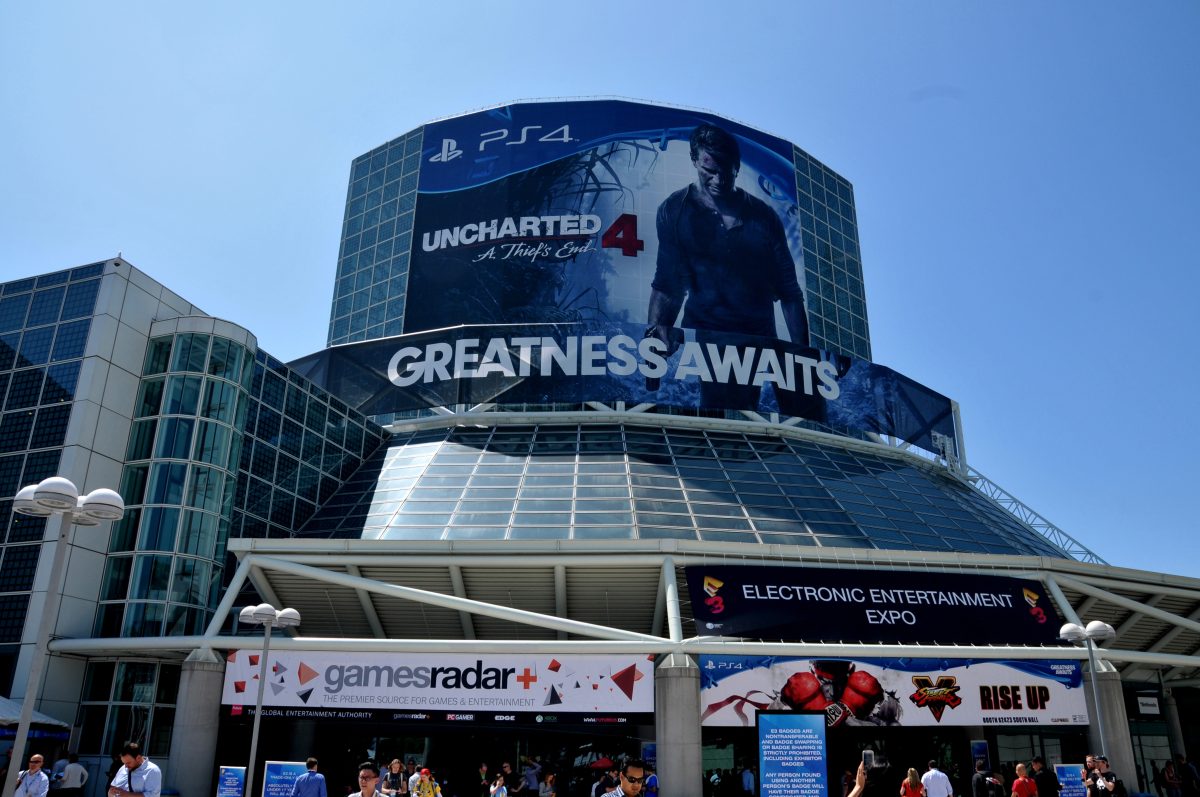E3 is an annual conference used by developers from almost every major video game publisher to show off new games. This year it will be held in Los Angeles from June 9-14. It is generally good for the industry, as it drives competition, but it also has problems. Chiefly, the large cost all companies must pay to attend means that they are willing to exaggerate or even lie about new products. Therefore, consumers are often deceived about the nature of games that are presented.
E3 is an exciting time for lovers of video games and technology alike. Every year companies reveal an enormous number of products. E3 is used to announce and display many new forms of technology. In 2005 the PlayStation 3 was announced there by Sony, and Sony’s newest console, the PlayStation 4, was fully unveiled at E3 2013. Microsoft also fully unveiled their most recent console, the Xbox One, at E3 2013. Microsoft also announced the Xbox Kinect at E3 2009. Nintendo announced the Gamecube, the Wii, and the Wii U at E3 2001, 2006 and 2012 respectively.
The conference has also been used to announce many new, important video games. Half of the top ten best selling games of 2017 were announced or fully unveiled at that year’s E3. The best selling single-platform game of all time, Wii Sports was announced at E3 2006. Each year E3 announces or fully unveils more games than any other event. During E3 many publishers use a large amount of showmanship for new products which helps add to the atmosphere and create excitement. For example, at E3 2017 Sony began its press conference by presenting traditional Indian musicians followed by water art, live flames, and explosions.

(By CNET.com)
E3 has many problems that plague it and cause issues for consumers. Companies at E3 spend huge amounts of money on many aspects of the conference which can cause problems. There are varying estimates of how much it costs companies to attend the conference, but engadget.com estimated that in 2013, Semiformal Studios, a minor developer who didn’t hold a press conference and secured a 600 square ft. space, spent $100,000 on the whole show, and this was using several methods to save as much money as possible.
At E3 2017 Sony secured a 43,500 square ft. space, Nintendo secured a 32,400 square ft. space and Microsoft secured a 17,412 square ft. space. And the spaces aren’t the only cost as each company must pay for the booths themselves which include massive displays and many consoles and games. Also, most major publishers hold a large press conference before they open the floor to visitors of the event which increases overall expenditure. The game industry brings in a large amount of money.
In 2015 it was estimated at $91.5 billion. Every major publisher wants the largest share of this market and knows that E3 is one of the best places to tap into it. 68,400 people attended E3 2017 and Twitch announced that 925,000 people tuned in to their live streaming service simultaneously to watch coverage of the event. This combination of price and viewership means that most companies are willing to over exaggerate or lie about aspects of new products. Often companies will delay or cancel games that they show off or will set unrealistic release dates for games displayed at the conference. Many other lies have also been perpetrated at E3 in the past, some of the most egregious including Sony’s coverage of the game “No Man’s Sky” which when released lacked most of the features shown off at the conference.
While E3 does have problems, some sources consistently state that E3 has no redeeming qualities. An article by Polygon called “The E3 show needs to die (or change drastically)” argued that E3 is totally flawed in the modern day, “looking back across the 22 years of shows, it’s obvious that many of the formative reasons the show was created no longer exist.” The article then goes on to say that, “The chief, original reason for the creation of the show — giving retailers a place to check out upcoming games and make buying decisions — isn’t necessary because those orders come in well before the show starts.” To say that the show exists solely to show new games to retailers is simply untrue. If this was the case it would not make sense to open it to the public and allow them to play new games at the conference. Also, if that was the reason to have the show and retailers put their orders in before it, it would make no financial sense to publishers to still pay to attend.
As E3 rapidly approaches, those who will be watching it should enjoy, but remember its flaws.
By Lincoln Manzi

































































